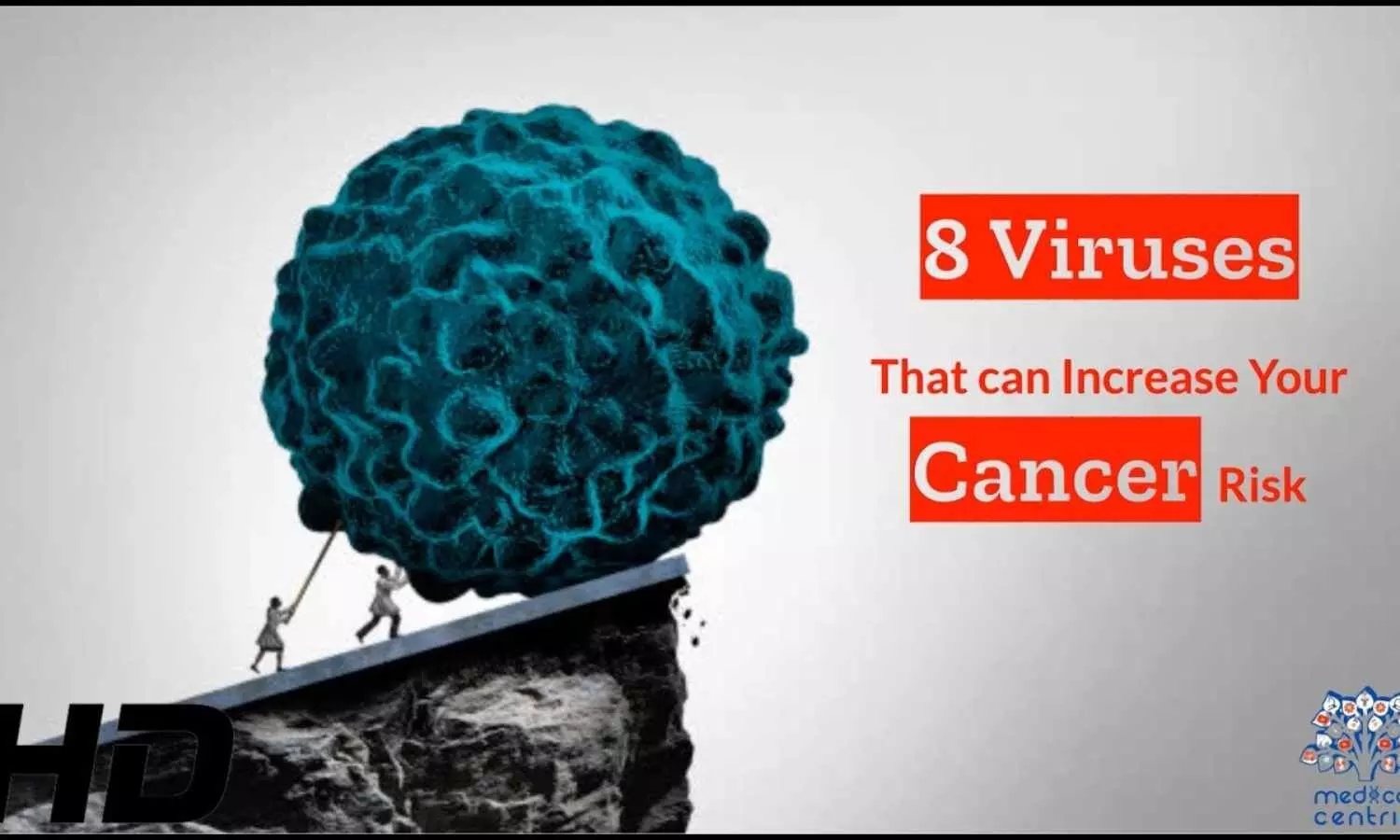Viruses That can Increase the Risk of Cancer: Facts That You Need to Know

Viruses That can Increase the Risk of Cancer: Facts That You Need to Know
According to studies approximately 15% of cancers are caused by viruses. Read more to know about the viruses that cause cancer.
Cancer is a serious health condition that affects many around the world. It impacts patients physically as well as mentally. But thanks to the advancements in technology, cancer treatments are much more effective than they were in earlier times, and the survival rates have also improved significantly.
People often blame poor lifestyles like smoking, bad diet and drinking alcohol for causing cancer. But there are other factors too that can cause cancer, like genetics and viruses. Yes, you read it right. Viruses can also cause cancer. Many people are unaware that viruses can cause cancer as we often think that they can only cause cold and flu. Cancer-causing viruses, known as oncogenic viruses, infect healthy cells and may lead to cancerous changes over time. Understanding which viruses increase cancer risk and how to prevent them is crucial for protecting your health.
What Are Cancer-Causing Viruses?
Cancer-causing viruses, also called oncogenic viruses, are capable of altering the DNA or RNA in your cells. This disruption can trigger abnormal cell growth, which may eventually lead to cancer. While not everyone infected with these viruses develops cancer, the risk increases significantly with chronic infections or weakened immunity.
Viruses don’t cause cancer in most people but people who use intravenous drugs and share needles, people who have unprotected sex with multiple partners or people who choose not to be vaccinated against certain viruses linked to cancer are at a higher risk of cancer due to viruses.
How Do Viruses Trigger Cancer?
Viruses can lead to cancer by inserting their genetic material into healthy cells. This process may:
- Disrupt normal cell growth by altering DNA,
- Suppress the immune system, making it harder for the body to fight off abnormal cells and
- cause chronic inflammation, which damages tissues and increases the chance of cancerous changes.
Top Oncogenic Viruses that cause Cancer
1. Hepatitis B Virus (HBV) and Liver Cancer
Hepatitis B is a virus that affects the liver. This virus triggers inflammation in the liver, which can lead to scarring (cirrhosis) and eventually cancer. HBV spreads through blood, unprotected sex, or from mother to child during birth. The hepatitis B vaccine which is recommended for all children, babies and adults is highly effective in preventing this infection and reducing liver cancer risk.
2. Human Papillomavirus (HPV) and Cervical Cancer
HPV can infect the skin or mucous membranes. People can catch HPV through sexual activity and most sexually active people have at least one HPV infection in their lifetime.
HPV is also one of the most well-known viruses that cause cancer. It is mainly linked to cervical cancer but can also cause cancers of the anus, throat, and genitals. HPV spreads through sexual contact and is highly common worldwide. Fortunately, there are vaccines available that can prevent infection with high-risk HPV strains, significantly lowering the risk of virus-induced tumours.
3. Epstein-Barr Virus (EBV)
EBV is a very common virus, and most people get infected with this virus at some point in their lives. Most of the time people with EBV stay healthy and usually doesn’t cause any problems. But for others, it can cause serious conditions like viral meningitis to pneumonia and also trigger several types of cancers like Burkitt lymphoma, Hodgkin lymphoma, and nasopharyngeal cancer. EBV spreads through saliva, making it easy to transmit through kissing or sharing personal items like food, drinks etc. While no vaccine exists yet, researchers are actively studying viral oncology to develop preventive measures.
4. Human Immunodeficiency Virus (HIV) and Cancer Risk
HIV, best known for causing AIDS, infects white blood cells and weakens a person’s immune system. Though HIV itself does not directly cause cancer, it weakens the immune system, making the body more vulnerable to other cancer-causing viruses. People with HIV have a higher risk of developing Kaposi sarcoma, lymphoma, and cervical cancer. Antiretroviral therapy (ART) helps manage HIV, reducing the risk of virus-induced tumours.
5. Human T-cell Leukemia Virus Type 1 (HTLV-1)
HTLV-1 is a rare virus that can cause adult T-cell leukemia/lymphoma (ATLL). It spreads through sexual contact, breastfeeding, or sharing needles. Although ATLL is uncommon, it is a serious condition with limited treatment options. Preventing transmission is key, as no vaccine currently exists.
Though we cannot stop a virus from entering our body, there are some precautions we can take to stay safe. High-risk behaviours like unprotected sex with multiple partners and sharing needles should be avoided. Other than this, staying informed about cancer-causing viruses and taking preventive steps like getting vaccinated can help you stay protected.















